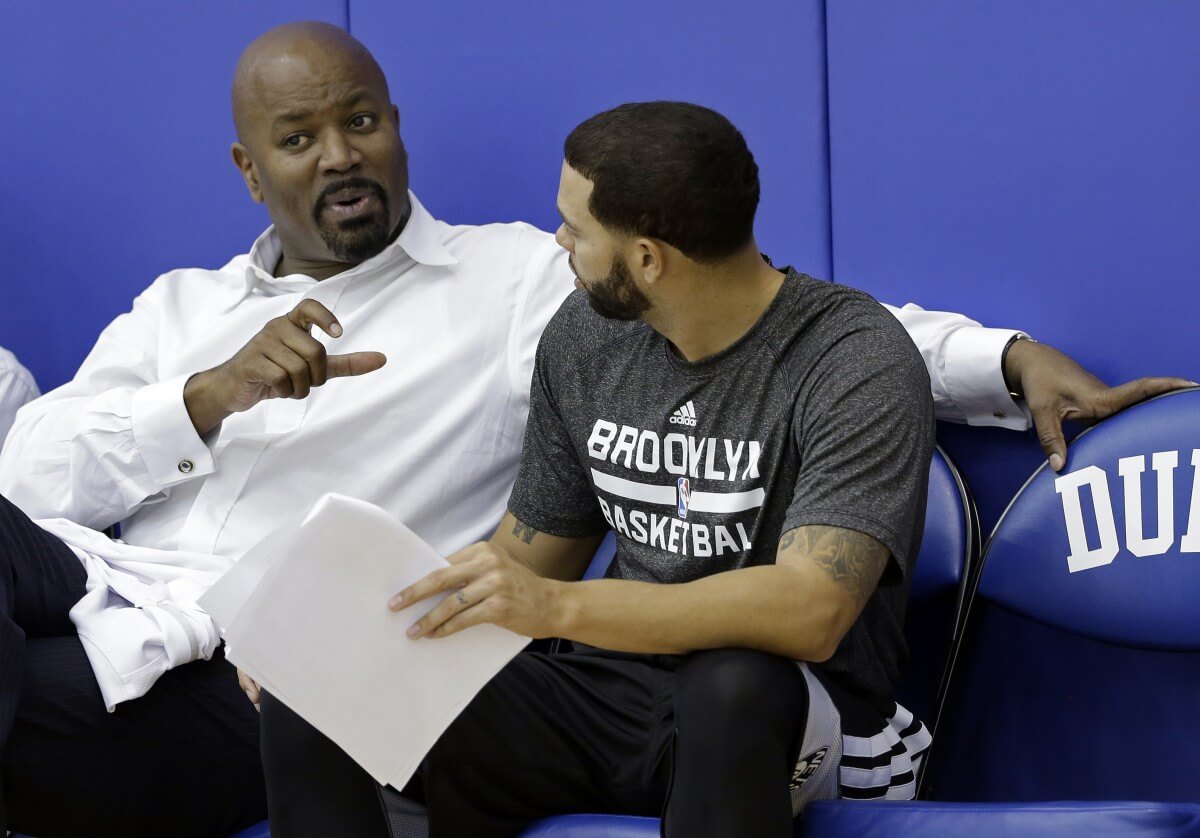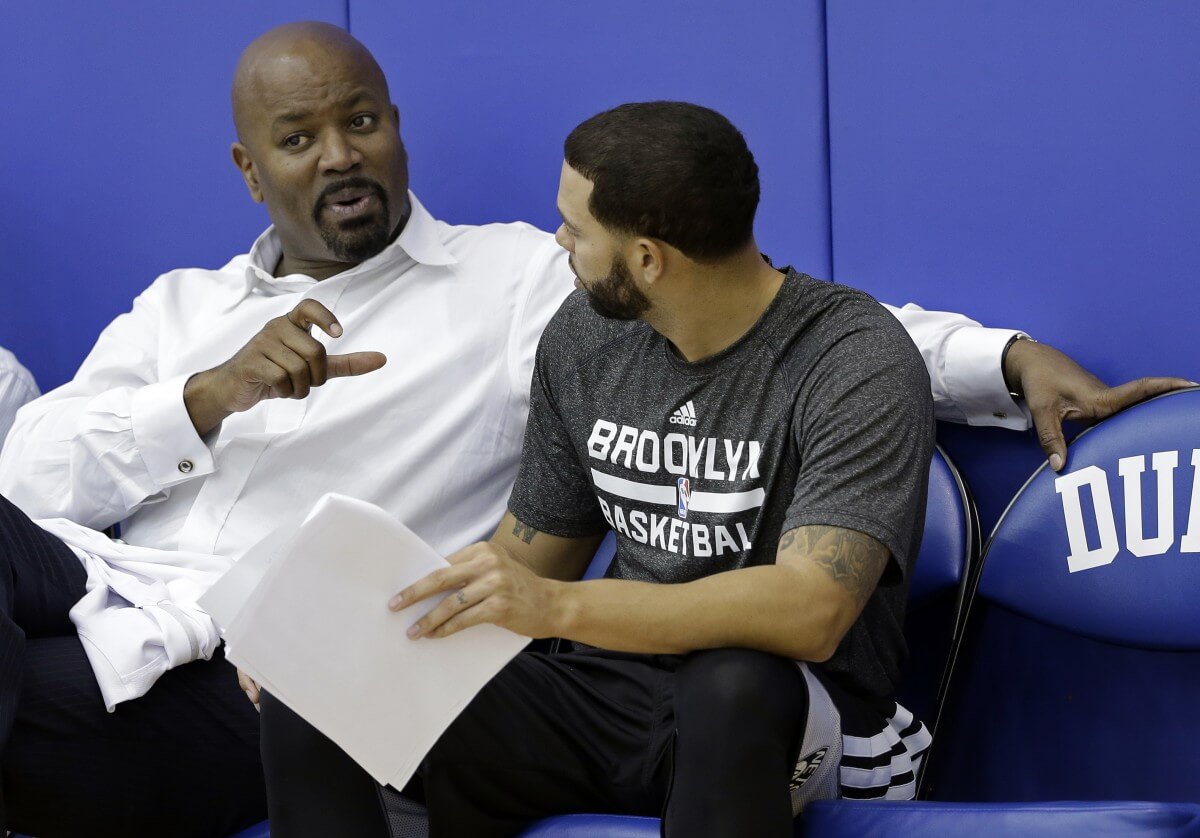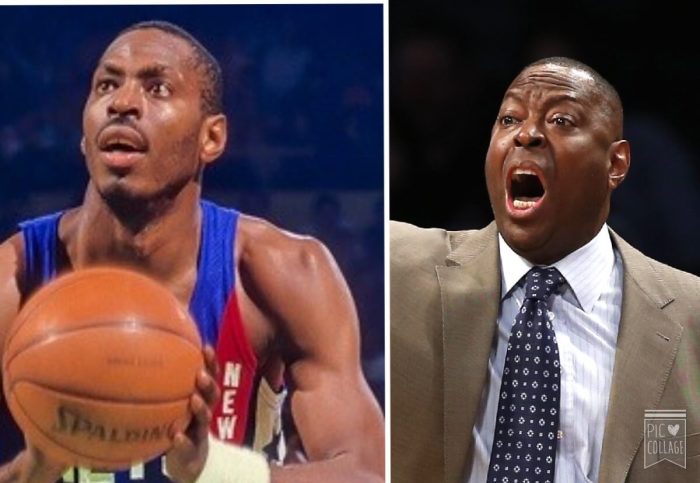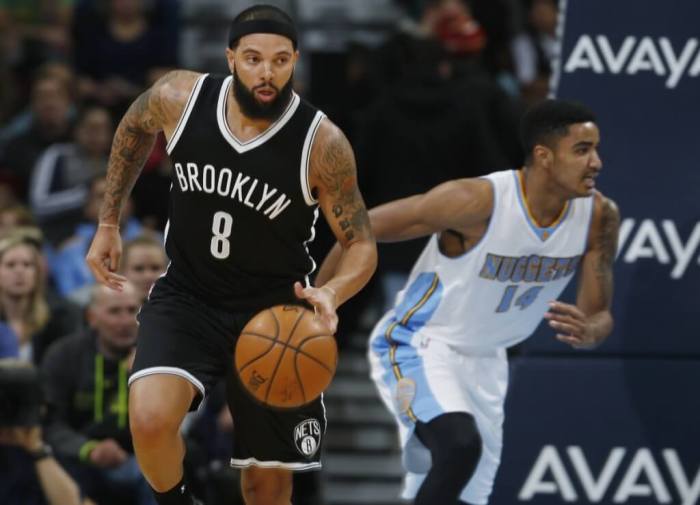
Following a lackluster season and a no-show for the final day of media, there were rumors that the Nets would look to buy out Deron Williams, either as a straight buyout or under the “stretch” provision.
But Nets general manager Billy King put those thoughts to rest Wednesday afternoon, answering the question with a flat “no.”
Williams is owed $43 million over the next two years, which includes an early termination option for the 2016-17 season. He averaged 13 points and 6.6 assists in 31.1 minutes per game this past season, shooting a career-low 38.7 percent from the field. He exploded for 35 points during Game 4 of the Nets first-round playoff series against the Atlanta Hawks, but only scored 36 points in the other five games combined.
King and Nets CEO Brett Yormark put out a letter to Nets season ticket holders about how the team hopes to re-sign Thaddeus Young and Brook Lopez and build around their young core. Williams and fellow backcourt mate Joe Johnson were conspicuously absent from that letter, a slight King says was not intentional.
“Within that letter, I think everyone made a big deal because we didn’t mention Joe and Deron’s name, but I think in doing so, we talked about Brook and Thaddeus, trying to retain them because they were free agents,” King said Wednesday. “We talked about some of our younger guys because some of those guys we didn’t know coming in how successful they’d be coming in the NBA. So I guess we were sort of saying, we know these guys can play in the league, and we weren’t trying to slight Deron or Joe. We know what they have, what they bring to the table.”
King added that the goal for the team was to get under the luxury tax, which is an impossible scenario if the Nets retain Williams, Johnson, Lopez, and Young.
“Mak(ing) a trade and bring(ing) back less in salary” is a possibility, King said. Following the season, King and Johnson both said that the team could be headed for a breakup.
“The goal is to try to be under the tax,” he added. “That’s just the goal. How realistic, it may not be. but that’s the goal. If we end up being over the tax, we went from $90 (million spent in the luxury tax) I think down to $17 (million). If we end up at $8 or $9 (million), then so be it. Then in the following year, where the numbers are going to go, we won’t be over the tax.”



















